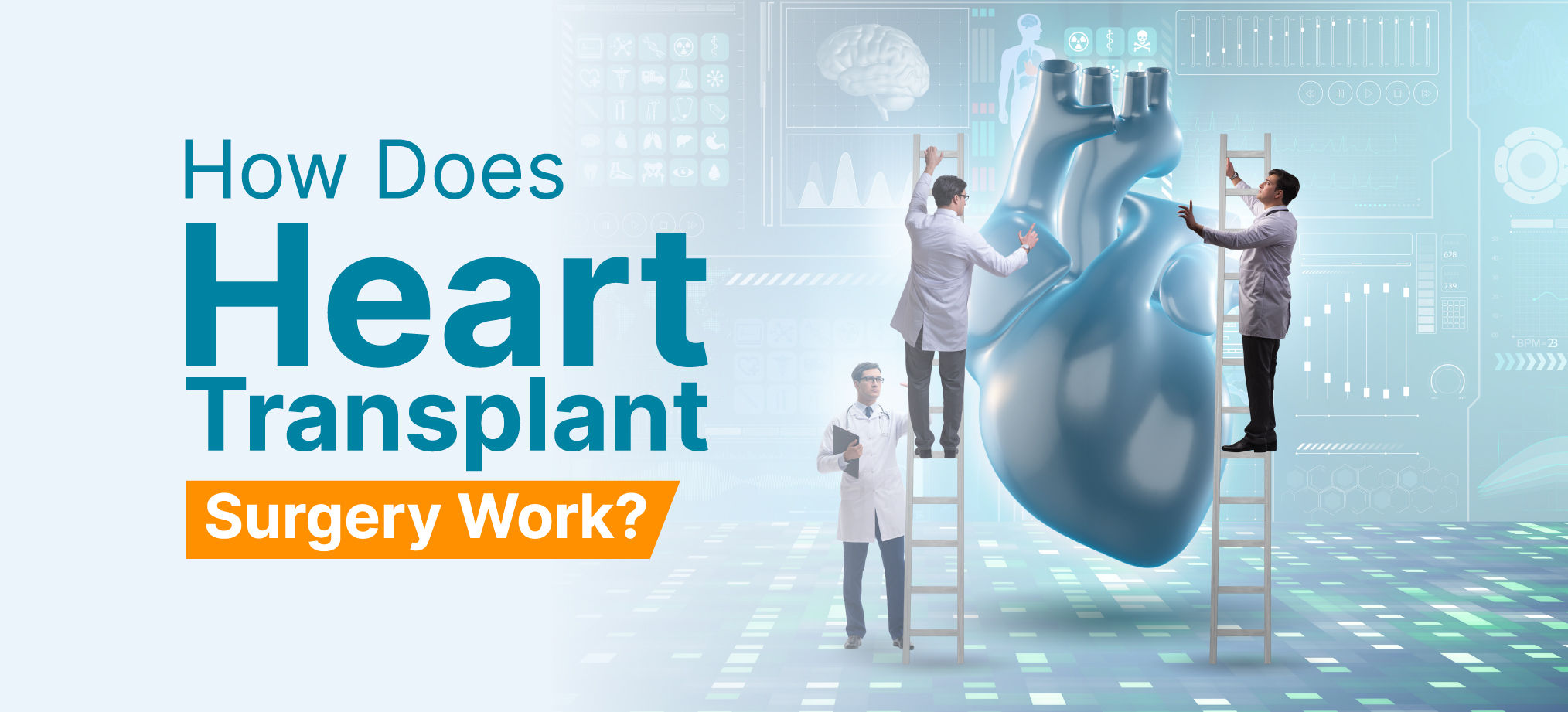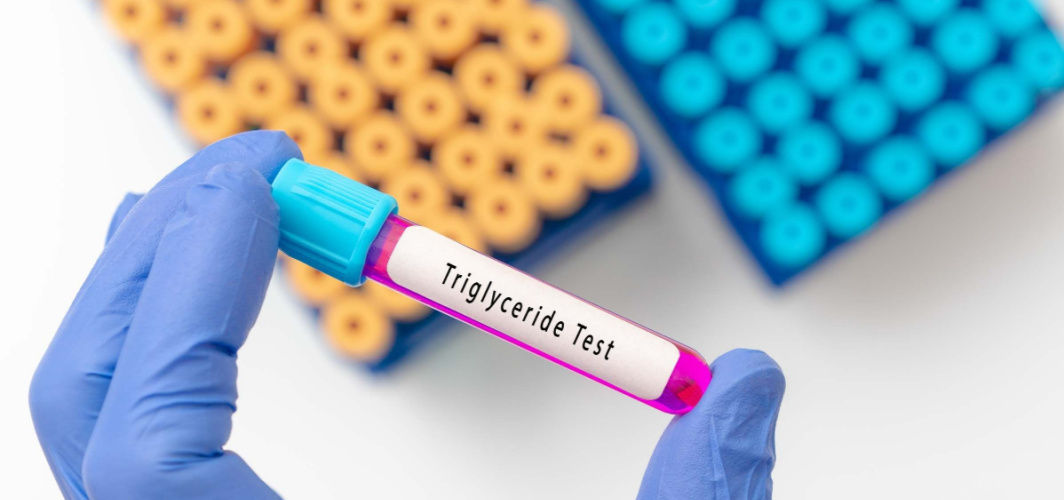Heart Conditions
How Does Heart Transplant Surgery Work?
4 min read
By Apollo 24|7, Published on - 24 November 2022, Updated on - 29 November 2022
Share this article
0
0 like

Did you know that the heart is the most powerful machine beating 101,000 times a day? And as we age, our hearts also require servicing just like any other other non-living machinery. While our hearts can endure enough pressure, some diseases may demand extensive medical intervention and sometimes even a transplant.
Diseases that require heart transplant surgery
In most cases, medical therapy can help in preventing blood clots and heart attacks. But a few heart diseases require surgical interventions like angioplasty, stent placement, and heart transplant. Here are some of those heart diseases that may require heart transplant surgery.
- Coronary heart disease (a build-up of fatty substances in the arteries)
- Heart failure
- Congenital heart defects (birth defects)
- Ventricular arrhythmias
If you doubt, you or your loved ones are suffering from any heart problem, do consult our expert cardiologists.
How does heart transplant surgery work?
The human heart usually cannot repair itself like bones and skin. Hence, when a person suffers from heart failure or a gravely diseased heart, they may be recommended a heart transplant surgery.
Heart transplant surgery is only recommended to people with no pre-existing immunocompromised conditions. The donated heart should also match all necessary antigens present in the blood of the recipient for the transplant surgery to be successful. This would also reduce the risk of rejection of the heart and other life-threatening consequences.
Who can donate a heart?
Medically, any healthy, deceased person can donate their heart. However, the majority of donors are people who are either in a comatose state for a long time or those who would have met with a fatal accident yet their heart is healthy.
Hence, after taking written consent from the patient’s family, the doctors extract the donor heart by injecting saline into it, which prevents the heart from beating temporarily. After retraction, the donated heart is either put in an ice and saline box for preservation or transplanted directly.
What happens during the operation?
During the heart surgery, the cardiac surgeon breaks open the chest bone and take out the diseased heart. Meanwhile, the patient is put on a cardiopulmonary cardiac machine which does the job of pumping blood into the entire body.
How to prepare for a heart transplant surgery
- Stay on an empty stomach for 8 hours before the operation
- If permitted by the surgeon, you may take clear fluids such as water or necessary medications, a few hours before the operation.
- Do not take alcohol or any other drugs 72 hours before the surgery.
- Do not stress about the surgery. Try to stay calm.
- Remember to rest adequately and sleep well before surgery.
- Do not take any blood thinning medications such as aspirin, coumadin, vitamin E and fish oils before the surgery.
Dos & don'ts after heart transplant surgery?
- An open heart surgery takes a healing time of two to three months at least.
- Take complete bed rest as recommended by your surgeon
- Remember to hydrate yourself (this will help anaesthetic medications to flush out from the body).
- Drink soups and consume plenty of fruits, lean proteins and vegetables to heal faster.
- Inform the doctor if the colour of your skin, lips, and hands turn blue
- Inform your doctor if you are experiencing chest pain, unexplained tiredness, or breathing difficulties 2-3 days post-surgery.
All these dos and don’ts can help the patient to recover quickly and reduces the risk of developing post-surgical complications.
Key Takeaway
A heart transplant is a surgery that involves the replacement of a damaged heart with a healthy one. In most cases of a heart transplant, the patient who is waiting for a new heart (the recipient) has a 30% or greater risk of dying within 1 year without a new heart.
However, after a successful heart transplant, the patient may live for five years or even more. Research says that anyone can receive a heart transplant but people above 70 years are not recommended. Furthermore, the donor should ideally be healthy with no heart or immunocompromised diseases.
Have more questions?
Consult Our Expert Cardiologists
Our doctors are available for both online and in-clinic consultations.
Medically Reviewed by Dr. Dhanunjay Reddy B
Heart Conditions
Leave Comment
Recommended for you
.jpg?tr=q-80)
Heart Conditions
Hypertension Causes and Risks: Your Guide to Prevention
Hypertension, or high blood pressure, is when the blood exerts excessive force against the artery walls, posing serious health risks. Due to high blood pressure, there is increased pressure on the heart and other organs while functioning, potentially leading to heart attacks, strokes, and kidney failure. Additionally, it can damage blood vessels, eyes, and the brain. Today, we will explore everything related to hypertension: what it is, its symptoms, causes and risk factors, and prevention strategies.
.jpg?tr=q-80)
Heart Conditions
Understanding Orthostatic Hypotension in Adults
Imagine sitting comfortably for a while, and when you stand up, you suddenly feel dizzy or lightheaded. This isn’t just a minor annoyance—it might be a sign of orthostatic hypotension (OH). Orthostatic hypotension occurs within 3 minutes of standing when a person stands up from a sitting or lying position.

Heart Conditions
7-Day Diet to Lower Triglycerides Naturally
how to lower triglycerides naturally, 7 day diet to lower triglycerides, how to lower triglycerides through diet, foods to avoid for high triglycerides, diet to reduce triglycerides
Subscribe
Sign up for our free Health Library Daily Newsletter
Get doctor-approved health tips, news, and more.
Visual Stories

World Heart Day 2021: Take charge of your health
Tap to continue exploring
Recommended for you
.jpg?tr=q-80)
Heart Conditions
Hypertension Causes and Risks: Your Guide to Prevention
Hypertension, or high blood pressure, is when the blood exerts excessive force against the artery walls, posing serious health risks. Due to high blood pressure, there is increased pressure on the heart and other organs while functioning, potentially leading to heart attacks, strokes, and kidney failure. Additionally, it can damage blood vessels, eyes, and the brain. Today, we will explore everything related to hypertension: what it is, its symptoms, causes and risk factors, and prevention strategies.
.jpg?tr=q-80)
Heart Conditions
Understanding Orthostatic Hypotension in Adults
Imagine sitting comfortably for a while, and when you stand up, you suddenly feel dizzy or lightheaded. This isn’t just a minor annoyance—it might be a sign of orthostatic hypotension (OH). Orthostatic hypotension occurs within 3 minutes of standing when a person stands up from a sitting or lying position.

Heart Conditions
7-Day Diet to Lower Triglycerides Naturally
how to lower triglycerides naturally, 7 day diet to lower triglycerides, how to lower triglycerides through diet, foods to avoid for high triglycerides, diet to reduce triglycerides